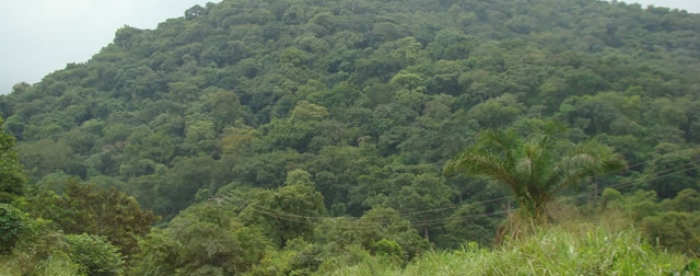Tropenbos International Ghana has over the years promoted inclusiveness and participation in the forestry sector through several interventions. These range from spearheading the development of the Domestic Timber Policy, supporting the formulation of the Procurement Policy on Timber and Timber Products, and contributing to the review of the Forest and Wildlife Policy.
In addition, TBI Ghana supported the review of laws and legislations regulating harvesting of timber in off-reserve areas, submitted inputs for the review of the National Charcoal Policy from a livelihoods perspective and also provided a scientific basis for determining an effective ‘Benefit Sharing’ mechanism based on the roles and responsibilities of stakeholders.
In a presentation at a symposium to mark the end of its five year phase, from 2011 to 2016, Dr Emmanuel Marfo of the Forestry Research Institute of Ghana (FORIG) enumerated these achievements as some of the successes chalked by TBI Ghana in its desire to address problems confronting the forestry sector in Ghana.

The symposium took place in Kumasi on October 13, 2016 and brought together 70 participants including members of beneficiary communities of TBI Ghana projects, traditional authorities, researchers, academics, Civil Society Organisations, farmers, people in industry, policy makers, representatives of the Forestry Commission (FC), the Ministry of Lands and Natural Resources (MLNR) , Civil Society Organisations (CSOs) and other governmental agencies.
He said in the area of Capacity Building, TBI Ghana contributed immensely to the Voluntary Partnership Agreement (VPA) signed between Ghana and the European Union (EU) by providing insights into social safeguards as captured under the agreement and participating in the development of the VPA Communication Strategy.
Under Ghana’s Legality Assurance System (LAS), TBI Ghana unearthed its shortcomings with regards to the needs of woodcarvers whose sources of wood go beyond the conventional definition of wood sources under the system and hence cannot be captured under the Wood Tracking System (WTS). Consequently, a review of the system to capture such wood sources is underway.
In a bid to promote the implementation of REDD+ activities, TBI Ghana created REDD+ ambassadors in three schools in the Northern and Eastern Regions of Ghana through amenity tree planting while pushing the interest of other Civil Society Organisations (CSOs) in the development and implementation of REDD+ activities.
In response to the high rate of corruption in the forestry sector which undermines effective forest governance, TBI Ghana developed an anti-corruption toolkit for combating unacceptable forest practices and also developed a blueprint for developing district forest plans which were piloted in the Assin Fosu District in the Central Region and Nadowli District in the Upper West Region.
In addition, TBI Ghana developed and promoted a model for Multi-Stakeholder Dialogue (MSD) for decision making in the forestry sector and also developed a manual for decision-making processes for natural resource rich communities.
With regards to Cooperation and Coordination, TBI Ghana championed and supported efforts to foster synergies between REDD+ and FLEGT.
While lauding TBI Ghana for its achievements, Dr Marfo pointed out that there are still areas in the forestry sector that need a lot of improvement. In this regard, TBI Ghana could develop mechanisms for assessing responsiveness and accountability to check corruption in the forestry sector and also promote mechanisms for forest extension systems to be institutionalised.
TBI Ghana could also implement tenure and benefit sharing reforms by facilitating legislative support, undertake more empirical studies on testing and monitoring governance impacts, especially, under a VPA implementation regime while supporting the improvement of institutional performance through the reduction in operational transaction cost and time and thus increase the efficiency of revenue capture.

